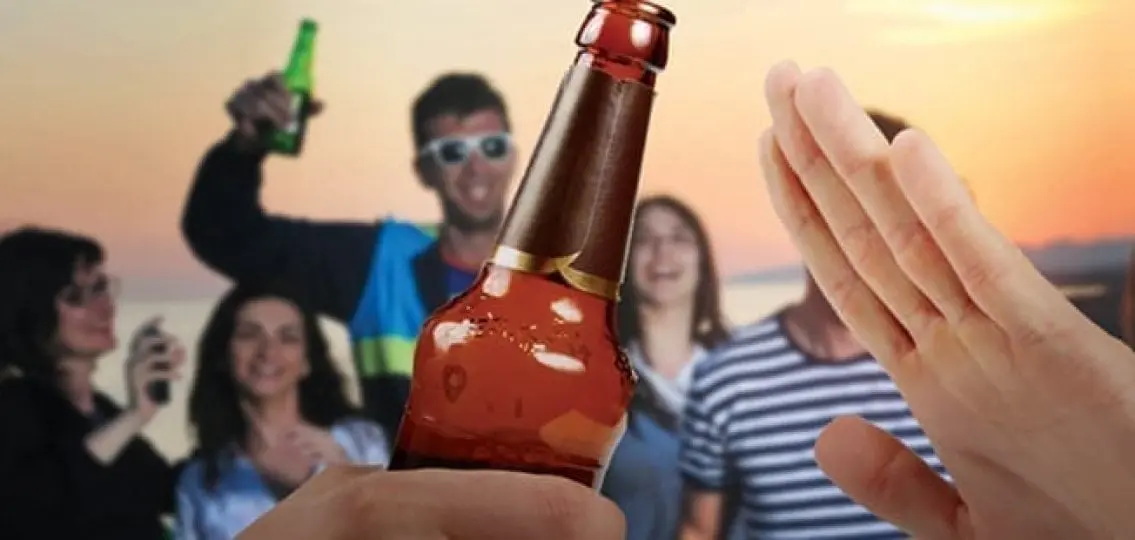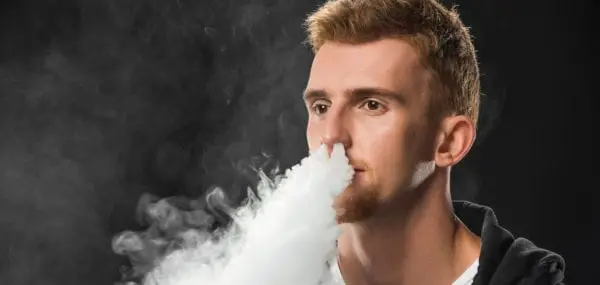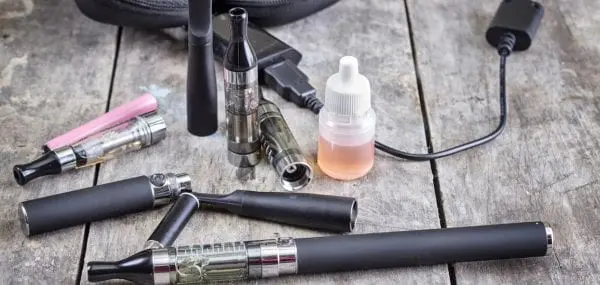Not every teenager wants to drink alcohol. But the pressure to drink surrounds us— from society, media, and friends. We need to be able to offer advice about how a teen can avoid drinking.
It’s no secret that underage drinking is part of American teen culture. It’s a quieter fact, though, that not every teenager wants to drink.

Teens have different reasons for not wanting to drink:
- Some may simply want to follow the law.
- Others are unable to drink due to a medical condition or illness.
- Children with a family history might be concerned about alcoholism in the family.
- Some just may not enjoy drinking.
Whatever the reason, you can support your child’s choice in a number of positive, proactive ways.
How Can a Teen Avoid Drinking?
Here are four ideas that will help teens who don’t want to drink.
1. Encourage your teen’s choice.
Jessica Greher Traue, Director of Wellness and Prevention at Bentley University in Boston, emphasizes that talking about drinking is paramount. “One of the most helpful things you can do is talk to your teen, and make it an ongoing conversation. There’s a body of research that shows that parents who talk about these issues have teens who consume less alcohol, hang out with peers who consume less alcohol, and get better grades.”
Clinical psychologist Dr. Jennifer Guttman agrees with the need to have frank conversations about alcohol. She tells parents, “It’s important to empower our children not to give into social pressure to drink.” She suggests explaining to your teen that if she’s being pressured to drink, it may be because others need validation for their own drinking. “People feel better about their choices when everyone does the same thing.”
2. Share practical strategies kids can use to overcome the social pressure to drink.
Hold a cup. When teens who want to avoid drinking are in a situation where drinking is happening, Traue suggests holding a cup but filling it with a non-alcoholic drink. “If someone sees a cup in their hand, they will assume they do not need a drink.” Also, Traue says, “If they want to get out of the setting, set up a secret code text message or emoji as a distress signal to you, or to peers.”
Be a designated driver. Another option is that a non-drinking teen with a driver’s license can be the designated driver, which can automatically put them in a “pass” zone when it comes to alcohol pressure.
Say you are on meds. In addition, Guttman tells teens, “Saying that you take medication that doesn’t interact well with alcohol is a good strategy to seamlessly get out of drinking without social ramifications.” And, Guttman says, “Most of my clients with illnesses [that forbid alcoholic beverages] successfully find friends who are not big drinkers to attend parties with so that they don’t feel left out.”
3. Find alternative activities.
Spending a lot of time as a non-drinker at heavy-drinking parties can be tiresome, though, so finding alternative activities can also be helpful. “Assumptions play a big role in social choices,” Traue says. “A group of peers might assume that drinking is the norm, or drinking is the only fun thing to do. If no one in the group ever suggests an alternative—even one they all find fun—then the group may fall into a pattern where all they do is drink.” Sit with your teens and brainstorm a list of activities that they can enjoy with their friends. Then support their initiation of these activities by offering your home, your transportation, or whatever other practical support you can give.
4. Share statistics.
Finally, remind your teenager that perception of use is often greater than reality, says Traue. Teens often report that “everyone is drinking,” but studies show a downward trend in teen drinking, and that a significant majority (nearly two-thirds of 8th, 10th, and 12th graders) report having had zero alcoholic drinks in the past twelve months. “Sharing positive normative data like this can be reassuring, reinforce choice, and promote the healthy majority,” says Traue.





